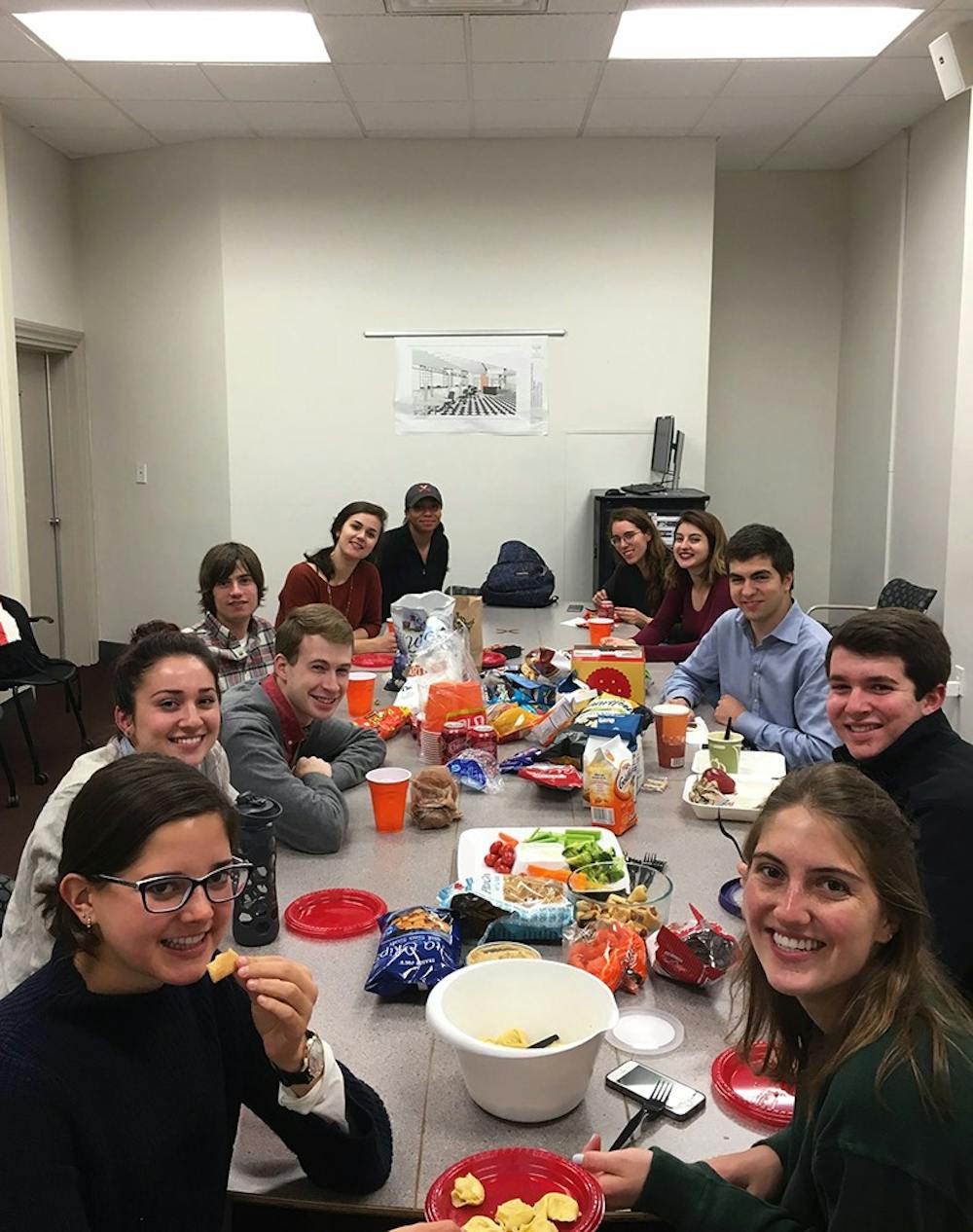Sustained Dialogue, a student-led Contracted Independent Organization that facilitates dialogues between students from a variety of backgrounds and perspectives, is implementing new structural changes this year to moderate constructive conversations within the current political and social climate both at the University and even the United States at large.
From an organizational standpoint, one strategy the CIO is emphasizing is promoting diversity in recruitment among both the dialogue moderators and participants.
Sustained Dialogue moderator Rawda Fawaz, a second-year College student, finds maintaining student diversity allows dialogue to remain impactful.
“In Sustained Dialogue we try very hard to think about what perspectives are not in the room,” Fawaz said. “This year we are working hard to get students from a variety of backgrounds, especially in such a socially tensioned time we think it’s really important to cross political and social boundaries in conversations. We want to make sure that it doesn’t become an echo chamber, when everyone agrees with everyone on everything.”
Sustained Dialogue Chair Mary Russo, a fourth-year College student, said maintaining diversity among moderators was also a top priority this year.
“Our main focus is recruiting moderators who represent a really wide range of parts of the University because we find that participants reflect whom we have in the moderator body,” Russo said.
Sustained Dialogue moderator Sam Coppel, a third-year College student, expanded on the importance of facilitating what can often be difficult discourse, even if students hold polarized political or social values.
“I think [Sustained Dialogue] is pegged as this liberal organization, but what we really want is ideological diversity, that anyone feels comfortable saying anything about their political opinions because that’s the only way we can confront and understand where other people are coming from and understand their thought processes,” Coppel said.
Sustained Dialogue is also implementing structural changes to better serve the interests of their participants and strengthen the quality of conversations. Within the traditional Sustained Dialogue model, students discuss topics within “The Big Eight” — race, ethnicity, ability status, gender, sexual orientation, religion, ethnicity, class and age — over a semester. However, this year a “topic-specific” group will allow interested students to discuss a specific topic for the entire semester for more in-depth and concentrated conversions.
“We try to gauge what people want to talk about and what’s getting people engaged and get them to think and leave uncomfortable,” Fawaz said. “Two moderators are going to be leading a dialogue for the semester about ableism at U.Va., in society and the world and trying to attack it from all different angles.”
Additionally, this year also marks the introduction of a “Level Two” group, which will be composed of students who previously participated in Sustained Dialogue. Unique features of this group include a greater emphasis on intersectionality when discussing issues and bringing outside resources and guest speakers to the group.
Looking forward into the semester, Coppel said as a first-time moderator, he is most excited to see where the conversation goes.
“Moderating from the practice I’ve had gives you a lot of insight into social dynamics in the way that conversations unfold and compels you to think deeply about all the avenues down which this conversation can go,” he said.







